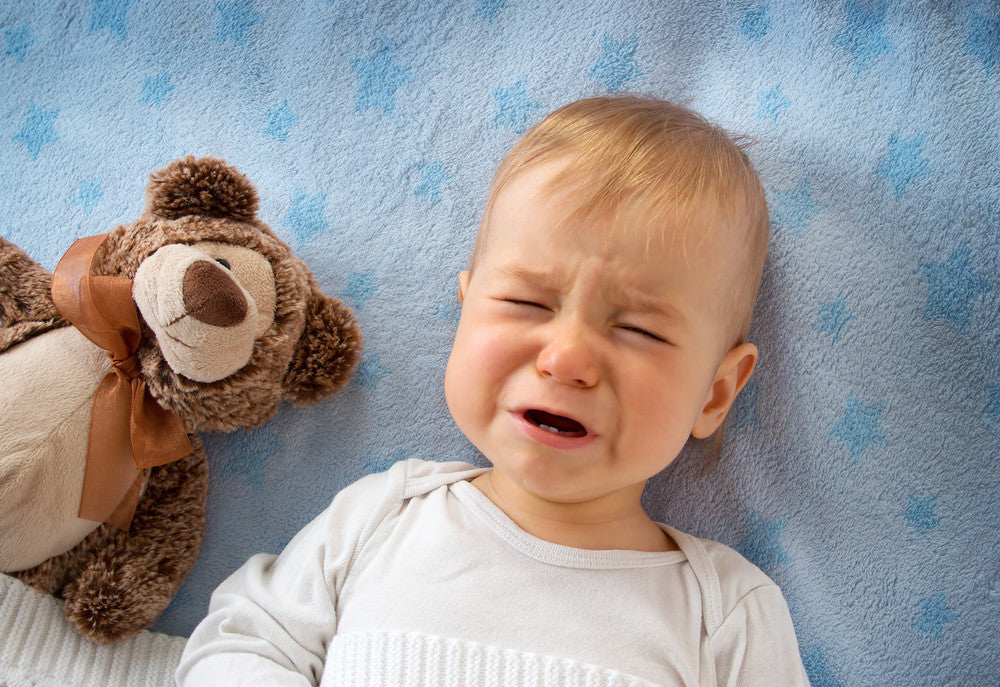One of the most frustrating issues when parenting a small baby is not being able to figure out why your baby is crying. Parents feel helpless and exhausted as they are not able to fix their baby’s problem.
Although some parents can identify the type of crying by the sound their baby is making, this is very difficult for first-time parents and not all babies will have a different cry for each problem. Here are a few common reasons why babies cry. Even though we all know these causes, when you baby is crying it might be helpful to go down the list.
Is your baby hungry?
This is the first question to ask. Babies’ tummies are tiny at first and they are only drinking liquids. During or before growth spurts some babies will want to eat every hour or two. So offering milk is definitely a good place to start. Many babies will also open their mouth and move their head left to right searching for the breast or the bottle. This is tell-tale sign that they are hungry. Make sure you put your baby to bed with a full tummy and top them off in the middle of the night if they start to cry.
Is your baby in pain?
Gas pain can be a real nuisance for babies, especially because they can’t tell you what’s wrong or what is hurting them. Try to make sure you burp your child by placing her tummy on your shoulder or by holding her in a seated position while gently tapping her on their back.
If you believe your baby is gassy you can try placing her on her back and gently pushing her knees into her tummy with her legs in froggy position. This can help pass gas. If your baby is arching her back, it could also be acid reflux.
Speak to your doctor if you’re concerned your baby is suffering stomach pain, because that is a common culprit for a crying baby.
Is it colic?
If your baby cries towards the end of the day on most days, it is likely colic. Colic usually peaks at about 6 weeks of age and should be over by 3 months of age. Unfortunately, not much can be done to prevent this end of the day crying. Holding your baby in baby carrier or making soothing repetitive noises like, “shh-shh” can help.
Is your baby cold?
This one is often overlooked, as we are always focused on making sure our baby is not too warm. Overheating is dangerous for babies, as they have difficulty regulating their body temperature. Feeling the back of their neck can be a good indication that your baby is cold.
Try putting your baby to bed every night in warm pajamas and a sleep nest. Specially designed for your baby’s needs, a sleep nest is warm and breathable and will also eliminate any risk of them having a loose blanket in the crib that could potentially cover their face while they are sleeping.
The first three months with your new baby are tough because babies usually don’t have any established sleep patterns and their tummies are still very immature. Thankfully, most of these issues improve drastically at the end of your baby’s first hundred days.


Leave a comment